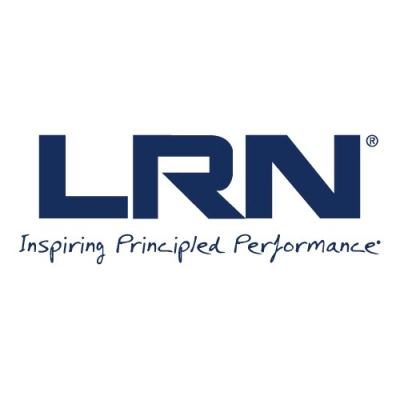Day 1: 6 October 2025
8:00 am - 8:30 am
Registration & Coffee
8:35 am - 8:40 am
IQPC Opening Remarks
8:35 am - 8:45 am
Chairperson’s Opening Remarks
Mitzi Berberi -
Chief Business Development Officer,
Kiwi.com
8:45 am - 8:50 am
Live Polls
8:50 am - 9:35 am
Panel Discussion: Geopolitics and the Law: Are We Heading for a Divided World?
Nadiya Bilous -
General Counsel CEEMEA,
the LEGO Group
Michael Strauss - General Counsel, EBRD
Florian von Götz - Chief Compliance Officer, Axel Springer
Pedro Salvat - General Counsel EMEA & President, PPG Industries
Jan Lischek - General Counsel EMEA, Siemens Healthineers
2025 has seen unprecedented global geopolitical shifts, trade wars, and conflicting regulatory regimes, which are affecting organisations throughout Europe and creating a fragmented global landscape. Gain insights into what you should expect to see in the coming months to help you prepare your organisation’s strategy.
- Gain a comprehensive understanding how the current geopolitical shifts are likely to affect legal leaders going into 2026 and beyond.
- Insights into how you can maintain strong reputation across diverse jurisdictions, despite complex geopolitical difficulties.
9:35 am - 10:05 am
Presentation: Operationalising AI Governance: Frameworks and Tools for Managing Third-Party Risk
Henry Umney -
Managing Director GRC Strategy,
Mitratech
After understanding the risks and regulatory challenges of AI in third-party ecosystems, the next step is putting governance into action. Translate theory into practice by equipping yourself with real-world frameworks, tools and strategies to effectively manage AI-driven risks across your vendor landscape.
- Hear practical AI governance frameworks tailored for third-party management.
- Explore tools for auditing, monitoring, and enforcing AI use policies among vendors.
- Discuss how to align internal and third-party AI policies to drive consistent compliance and risk reduction.
10:05 am - 10:35 am
Legal & Compliance Hot Seat: How to Thrive in 2026?
Mitzi Berberi -
Chief Business Development Officer,
Kiwi.com
Ilka Röhrhoff - Chief Compliance Officer, RWE
At last year’s Exchange, a common theme emerged, ‘How do you survive as a GC and CCO in 2024?’. The demands placed on legal and compliance teams have continued to expand throughout 2025, including deepening regulations and more complex litigations. How do you, as GCs and CCOs, meet and exceed the demands from external stakeholders, as well as manage internal pressures to be an effective leader of the people in your legal and compliance teams?
- Come prepared with questions to ask our General Counsel and Chief Compliance Officer on our legal hot seat about the complexities and challenges they face in their roles.
- Hear how others are balancing demands placed on them by both external and internal stakeholders.
- Come away with best practices as to how you can not only survive, but thrive in your role, going into 2026.
Frequent changes in sanctions present challenges for businesses. Yet, restrictions for some might present opportunities for others. Agile frameworks and a solid understanding of the businesses appetite for risk are key when considering growth potential and how to approach the certain markets once sanctions lift.
- Discuss how to continue to adapt your compliance framework to stay agile in the constantly shifting landscape.
- Hear from other in-house leaders how they predict that the European sanctions landscape will change over the next year.
- Share with peers the success stories that were born out of sanctions induced change.
New regulations impacting all industries continue to create complex challenges for businesses and the manner in which they operate, requiring more legal guidance or requiring more than legal guidance?
Jamie Glenie - Commercial Director, Luminance
Tim Siewart-La Chon - Head of Legal, Trench Group
As companies grapple with AI, cultural readiness has emerged as a key determinant of successful AI adoption. Shifting an organisation’s mindset from scepticism to curiosity requires leadership, clear communication, and cross-functional collaboration. One of the most significant barriers to implementation is risk aversion – but does adopting AI truly demand a binary approach to risk, or is there room for informed experimentation and innovation? Join this session to discuss how companies can foster a more open, innovation-friendly culture while teams with the skills and knowledge to balance risk with opportunity.
- Learn to assess your current culture, and how you can model curiosity and trust in AI, enabling your team to view it not as a threat but a strategic enabler.
- Discuss how to overcome implementation hurdles with cross-functional alignment from legal, IT, operations, and business units to help demystify AI and embed it responsibly.
- Redefine your role in the implementation of AI and shift from gatekeeper to strategic advisor, prioritising governance over paralysis.
12:25 pm - 1:10 pm
Panel Discussion: AI Governance & Legal Leadership: Balancing Innovation, Compliance, and Ethics
Daniel Hayter -
Managing Director & VP of Europe,
Axiom Law
Christian Ries - Group General Counsel, SVP (Syndikusrechtsanwalt), HelloFresh
Marina Rubini - Member of the Board of Directors, BNL BNP Paribas
Ivan Mijatovic - Head Compliance Group Functions, Swiss Re
Lola Willemsen - Head of Legal (EMEA), Mitsubishi
Artificial intelligence is poised to transform the legal landscape, but how can you ensure it will become a force for good and not a source of disruption? This session cuts through the hype to explore the truths about your responsibility to pave the way for successful and safe adoption of Agentic AI in your organisation. Leading GCs and AI experts will discuss the opportunities and challenges of integrating innovative AI into legal functions, addressing the impacts on your legal team setup, ethical considerations, and the need for upskilling.
- Gain a realistic understanding of your role in the adoption of AI technologies.
- Identify the key steps that must be taken to ensure robust AI governance amid the rollout and wide usage of AI in your organisation.
- Debate the need for humans remaining in the loop and other guardrails for ethical and reliable governance.
- Learn how to remain well ahead of the curve and discover the effects it has on being a desirable employer in the legal space.
1:10 pm - 2:10 pm
Lunch
Increased volume and complexity of legal work, coupled with budget constraints and the need for specialised expertise across jurisdictions, have necessitated a strategic reassessment of how legal resources are allocated and managed. Modern legal departments must find the right balance between utilising your in-house legal team and outsourcing to external counsel.
- Learn how to conduct a strategic evaluation of your legal resources, including analysing current state, budget allocation, and risk tolerance.
- Discover strategies for leveraging external resources to complement in-house expertise and manage high-volume, high-risk matters.
- Gain insights into implementing cost-effective strategies, such as alternative fee arrangements and task-based billing.
- Discover how to leverage technology and innovation to streamline legal processes and improve collaboration between internal and external resources.
2:45 pm - 2:50 pm
Live Polls
2:50 pm - 3:20 pm
Presentation: Hidden AI Dangers: Protecting Your Organisation’s Reputation
John Baekelmans -
Vice President - Growth,
Legalfly
From shadow AI to regulatory blind spots, AI is creating risks that extend far beyond compliance. Based on a recent report surveying 154 general counsel across the UK, France, and Germany, this session unpacks six key governance gaps identified by in-house legal leaders and shows how each one can escalate into reputational harm damaging stakeholder confidence and long-term value.
• Learn how to close the adoption–governance gap with practical measures that protect both your legal position and your organisation’s reputation.
3:20 pm - 3:50 pm
Presentation: ESG at a Crossroads - Navigating your Organisation to Strengthen ESG Compliance and Competitiveness
Thomas Schoenholzer -
General Counsel,
The Swiss Post Ltd.
Given the growing political and corporate pushback against ESG initiatives, GCs and CCOs must strategically position their legal and compliance teams to anticipate any future regulatory adjustments within Europe. Hear how you can navigate your organisation through the great ESG landscape in Europe, whilst operating across the globe. How should you best prepare for the future of ESG in Europe?
- Explore best practices for navigating your organisation into a future of strong ESG compliance to remain competitive.
- Hear some of the common challenges faced and solutions discovered for effective ESG compliance.
- Uncover predictions and forecasts for the future of ESG regulations in Europe, in relation to geopolitical shifts and changing business perceptions towards ESG.
Sarah Nasiry - Legal Technology Solutions Consultant, Thomson Reuters
With the Corporate Sustainability Reporting Directive (CSRD) now in effect, companies in Europe are facing unprecedented demands for sustainability reporting. Delve into the challenges and opportunities of having navigated the first full year of mandatory CSRD reporting, addressing key issues such as supply chain due diligence, data accuracy, and the growing risk of climate-related litigation.
- Discuss with other GCs and CCOs approached the reporting challenges and which strategies proved most successful.
- Explore how to implement robust supply chain due diligence processes to ensure compliance with CSRD and address sustainability risks.
- Share strategies on how to best work with up- and downstream supply chain partners for more transparency and accuracy.
The complexity of establishing and operating businesses across borders is ever-increasing. Understanding and anticipating the nuances of each jurisdiction is essential to safeguarding corporate interests, ensuring regulatory compliance and supporting sustainable business growth.
- Examine key global trends driving business complexity and strategies to effectively mitigate risk and ensuring robust compliance in high-complex jurisdictions.
- Explore how the Global Business Complexity Index provides an in-depth analysis of the global and local challenges that impact the ease of doing business across borders.
5:40 pm - 6:25 pm
Champagne Roundtables:
Simon McCarthy -
Vice President of Enterprise Transformation,
ContractPodAi
Steffi Prange-Jones - Ethics & Compliance Sales Executive, LRN
Neil Cullen - Director of New Business (EMEA), LRN
- From Chaos to Clarity: Unlocking Business Insights from Unstructured Legal Data
- The Evolving Code of Conduct: Modernising for Accessibility and Impact

































































